Art and Mental Health Interview with Writer Lauren Holt
On pausing to find balance when creativity moves from catharsis into compulsion ...
No matter how many times I interview creative people about their mental health experiences, I am humbled each time that people choose to share with me. And honored that, in turn, I get to share with you. Today I have an interview for you with
of .From Lauren’s website: “Throughout my life, I have devoted myself to a great many endeavors, but it was writing that taught me how to devote myself to anything. Storytelling is the root of my artistry, the first way I ever learned to make sense of the experiences that moved me, troubled me, or changed how I understand others.”
Hi Lauren. Thanks for joining us here today to talk about the complex relationship between art and mental health.
When I use the term “mental health” I sometimes mean things with a diagnosis and symptoms but more often I just mean something akin to “how the challenges of life are affecting our thoughts and experiences.” And that, in turn, affects our creativity. With that in mind …
What are you open to sharing about your own experience of mental health to get us started?
I am an anxious person who has struggled with decision-making. I think a big part of mental health is accepting oneself no matter where one is emotionally and psychologically. It is resistance that often weakens my well-being.
And what can you tell us about your experience of creativity?
I have been writing fiction and poetry for as long as I can remember. I am also a songwriter. Ever since childhood, I have felt the need to tell stories, to “immortalize” experiences, dreams, feelings, whatever feels like it needs to be told. For me, being creative is being my truest self. I carve out time for creativity nearly every day. Without it, I start to feel very lost and confused. Art has been my truest constant.
Art can be so healing for many of us and yet it’s rarely all good. So let’s discuss some of the more complex ways it intersects with mental health.
For example, how does your creative content relate to mental health?
Everything I write (music included) has a certain sadness to it. It’s not all depressing by any means, but there is a little bit of the blues, or a little “dark turn of mind,” as Gillian Welch says, in most of my work. I do not personally suffer from clinical depression, but my mother does and I was raised in a pretty sad household. Still, I think there is a lot of beauty in sadness, so I like to explore it and give it depth in my stories and songs. Not everything sad is entirely sad, nor is everything happy entirely happy. It is the space between that intrigues me.
I love that. I always find richness in liminal spaces.
What would you say has been the biggest challenge for you in terms of the complexity of the relationship between writing and wellness?
When I was younger, I was pretty neurotic about writing. It became an unhealthy compulsion at one point. It led me to isolate, to seek perfection, and to pass up other opportunities that might have helped me to grow more. It was so negative for my mental health that I decided to stop writing for awhile and didn’t start again until I felt drawn to returning.
Now, I have a much healthier relationship with writing, I think because I no longer have any “designs” for it. Once, I wanted my art to be a certain way. Now, I am curious to see what it will be and I really never know until I sit down and get into it.
Curiosity is definitely good for creativity … and I find that it’s also good for mental health. I have said before that being curious about what’s on my own next page of life has sometimes been what pulled me through my darkest moments.
You mentioned that you paused writing for a bit for the benefit of your mental health. So let’s talk about the relationship between mental health and creativity productivity …
When I was more obsessive about writing, I was more productive, but I also wrote more garbage and I was much less happy overall. Now that I write when I feel like it, I would say that it is a core contributor to my mental health. Same goes for music.
Speaking of your music, is there anything specific to it that comes to mind as we discuss this topic?
I sometimes experience performance anxiety when I play solo in front of people (doesn’t really happen in a group) and this anxiety can be pretty debilitating.
Art can challenge us in so many ways. And yet, most of us keep returning to it because it also offers so many benefits.
How has it helped most for you?
What a big question to unpack! In brief, I would say that writing and music have served as my spiritual homes for much of my life. When nothing else makes sense, when I have no fucking clue what I am doing or I’m not proud of how I’m earning a living, or I don’t like where I’m living etc etc, sitting down to write or work on a song almost invariably fills my heart and reminds me of who I am. It is my guiding light, plain and simple.
Beautifully said. I love the way you articulate stuff, so I want to ask, in your own words, how would you succinctly describe the complex relationship between art and mental health?
I think art can both support and hinder mental health. It very much depends on how much acceptance and self-love we can develop around the artistic process. When we can let go of our desire to control, our longing for things to look a certain way, art becomes a pathway to spiritual growth (and thereby mental health).
Yes. Love that. Let’s wrap up with a few recommended resources related to writing and mental health … who should I read next?
Mike Rose has some pieces on writer’s block. James Pennebaker wrote about writing to heal trauma. Susan McLeod writes about emotions and writing. Czikszentmihalyi’s work on Flow is great.
Be sure to check out more work by
here on Substack. Here’s one of my favorite stories to get you started:If you read this far, perhaps you liked the work. The work does take work. It only continues with support, so please consider subscribing. My annual rate starts at $10 per year.

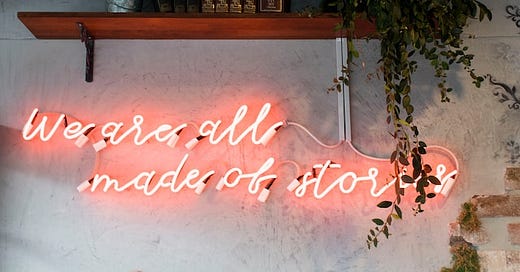



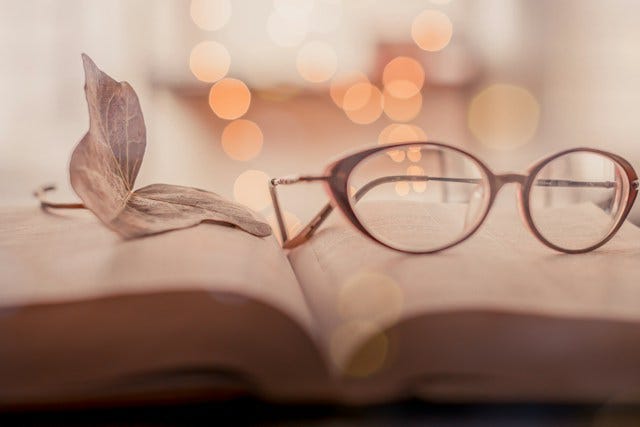
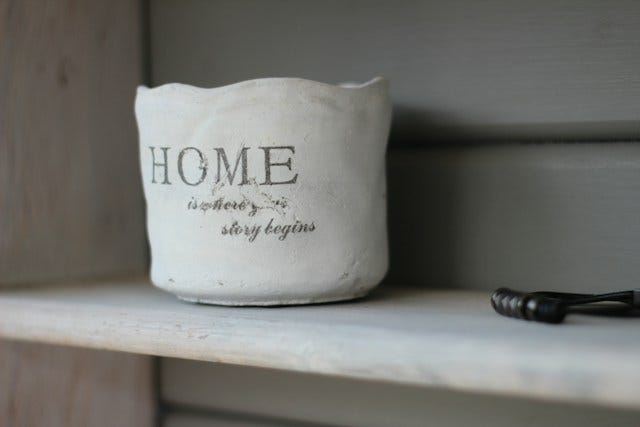


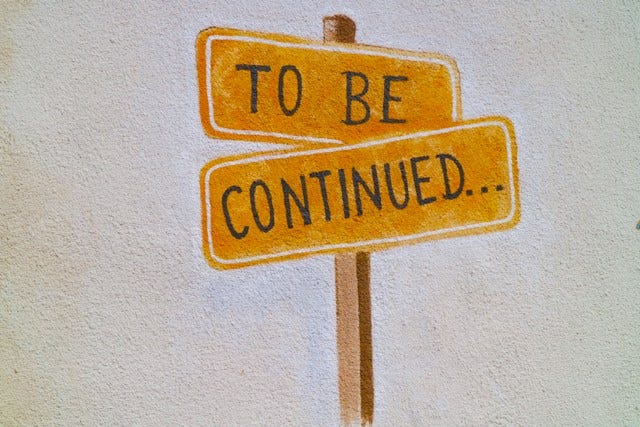

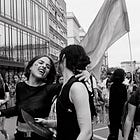


What a wonderful interview! I relate to a few of the themes Lauren mentioned - specifically art as a spiritual home; and also about art becoming compulsive.